Tag: James Joyce
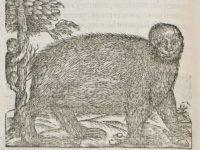
James Joyce would have approved of Lucy Cooke’s attempt to rehab the image of the sloth. A zoologist and founder of the Sloth Appreciation Society, Cooke argues that sloths get a bad rap. This unusual mammal—the world’s only “inverted quadruped”—derives its name from one of the seven deadly sins—“sloth”—a failing that’s drawn censure throughout history … Read More
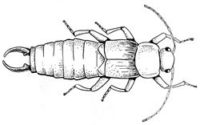
Franz Kafka’s The Trial and James Joyce’s Finnegans Wake arrived in English at almost the same time in the late 1930s,* two strange masterpieces without peer except for each other. They differ greatly in style but devote themselves conspicuously to the same agenda: the prosecution of their central characters in the surreal court of conscience … Read More
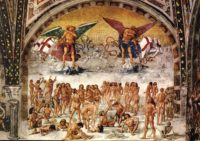
Rest in Peace. The phrase itself is a “dead metaphor”—so old and familiar, we no longer see it as metaphor at all. Rather, we see it as lamentable news of the most concrete, unvarnished fact of life: a death. But its root components in fact originate in an ancient metaphor, a comparison between sleep and … Read More
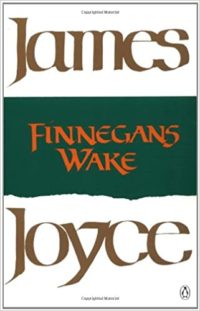
James Joyce’s fourth and final opus Finnegans Wake is a book so notoriously difficult to read that those who manage to finish it call it by a nickname conveying both dread and reverence: The Wake. In the movie Shine, Professor Parkes speaks of Rachmaninoff’s notoriously difficult piano concerto No. 3 in a similar way: “Well, … Read More
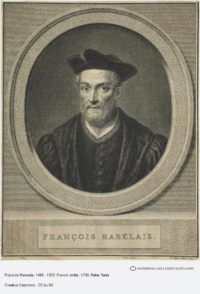
When I tell people I got my M.D. and then left medicine to become a fiction writer, they often say, “That was brave.” This is, I think, another way of saying, “You are obviously insane.” It’s perhaps particularly hard to walk away from medicine as a Jew. In Jewish families going back to Maimonides and … Read More
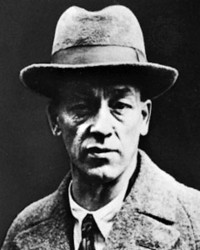
Irish playwright Seán O’Casey called him “the jesting poet with a radiant star in his coxcomb.” Eugene O’Neill asked him to name his children. James Joyce asked him to complete ‘Finnegans Wake’ should Joyce himself go blind. He published plays, novels, stories, and poems, including a series of them in The New Yorker in 1929, … Read More

The great modernists did not share postmodernists’ suspicion of science. Leopold Bloom, for example, the protagonist of James Joyce’s Ulysses, has physics concepts banging around in his head that reflect Joyce’s genuine curiosity about new discoveries in astronomy and other fields. In the Ithaca chapter of Ulysses, Bloom points out constellations in the night sky, … Read More
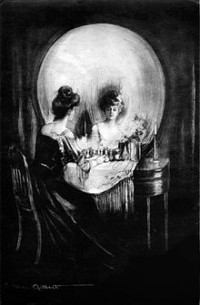
In 2006 David Foster Wallace wrote in the New York Times Magazine that you can appreciate tennis great Roger Federer even more “if you’ve played enough tennis to understand the impossibility of what you just saw him do.” I feel that way about Gustave Flaubert. It’s possible that you have to have worked as a … Read More
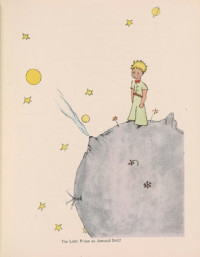
It was a magnetic Israeli poet-warrior who, during my second visit to Israel, thrust The Little Prince into my hands. He declared it his favorite book with an absolute conviction that, it must be said, characterized a large number of his statements. On the other hand the book obviously spoke to him personally and individually—so … Read More
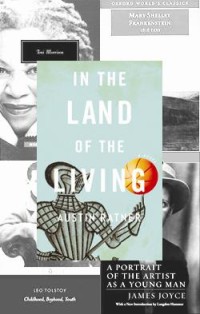
I will be blogging this week about my new novel In the Land of the Living, just released by Little Brown. Here is an excerpt of the second blog, which appears on the website of the Jewish Book Council:
Some academics have observed that young Jewish writers do not mine their personal lives for material in … Read More
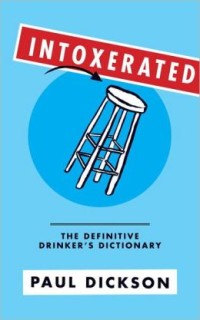
Ah, the holidays. The end of the year. When you celebrate by a cozy fire with the shiver of time in your fillings. When you cozy up to those you love best and those who therefore make you crazy. In other words, time to drink.
Melville House Books’s “Definitive Drinker’s Dictionary,” Intoxerated, a fun compendium of … Read More
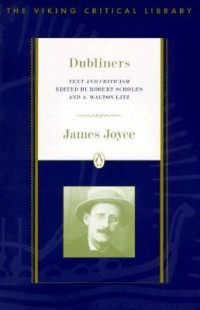
Dubliners was James Joyce’s first book, and it’s his most accessible, and possibly his most influential. The critic A. Walton Litz called Dubliners “a turning point in the development of English fiction.” Marc Wollaeger, editor of the Oxford Casebook on A Portrait of the Artist as a Young Man, writes that “Dubliners … virtually invented … Read More
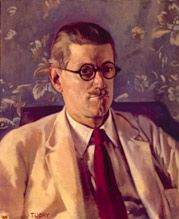
Last week one of Newt Gingrich’s several wives told ABC news that in 1999 he asked her for an open marriage. Evidently, she didn’t possess the amphibian flexibility required for marriage to newts or salamanders, because she declined, and they divorced.
Newt Gingrich isn’t the first organism to propose an innovative mating arrangement. Banana slugs, for … Read More
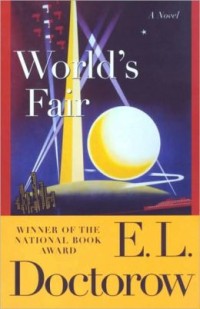
I was asked by Moment Magazine to write about a book by a Jewish writer who had influenced me, and I chose Doctorow’s charming and cunningly straightforward World’s Fair, which won the National Book Award in 1986. Click here to read the article.
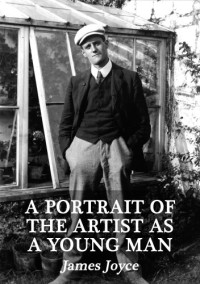
On June 15, 1917, a U.S. marshal and 12 New York City policemen entered the Lower East Side offices of the radical magazine Mother Earth and placed its editor under arrest. The U.S. was mobilizing to enter World War I, and the famous anarchist Emma Goldman had been charged with conspiracy to obstruct the draft … Read More
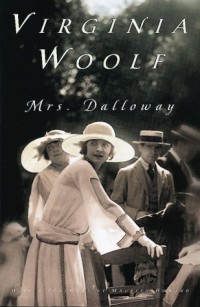
Mrs. Dalloway may take a back seat to To the Lighthouse (to which I’m partial, for one), but it probably doesn’t take a back seat to anything else in English prose fiction. Like Ulysses, it takes place on a single day in June and it enters the thoughts of various Londoners (as opposed to Dubliners) … Read More
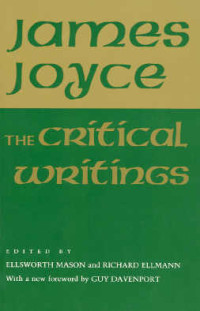
Joyce begins his essay “The Day of the Rabblement,” written when he was 19: “No man, said the Nolan [Giordano Bruno of Nola], can be a lover of the true or the good unless he abhors the multitude…. [I]t is strange to see the artist making terms with the rabblement.”
Bruno was burned at the stake … Read More
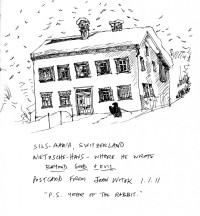
My blog this week, on Nietzsche, savagery, self-destruction, Lake Sils, Anne Frank, and stones in umbrellas, appears here, at writershouses.com. This is one of my best essays, on one of the best essayists of all time.
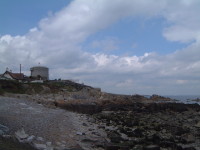
In September 1904, James Joyce lived in an old demilitarized tower on the coast south of Dublin. After his roommate nearly shot him in the middle of the night, he left the tower and Ireland forever. Joyce later set the memorable first chapter of Ulysses in the tower. It remains my favorite chapter of Ulysses … Read More
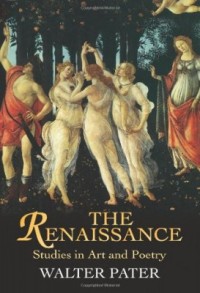
Good, empathic, sensitive, wise and true Walter Pater, secular prophet to a generation of modernists.
Pater’s aesthetics favor the neo-classicism and “Greek sensuousness” of the Renaissance, which he says “does not fever the conscience” in the way that medieval “Christian asceticism” does. He abjured the latter philosophy as one which discredits “the slightest touch of sense.” … Read More
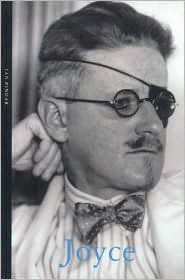
The psychoanalyst Eugene Mahon in 2006 published a wonderful paper in The Psychoanalytic Study of the Child entitled “The Invention of Purgatory: A Note on the Historical Pedigree of the Superego.” He writes of Purgatory as a kind of “third way” in the history of imaginings of the afterlife:
“If Heaven and Hell sound absolute in … Read More
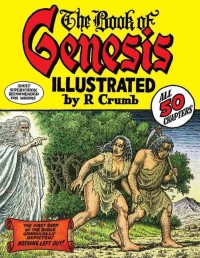
Harold Bloom says that Freud learned all his psychology from Shakespeare. Would it be radical to suggest that Shakespeare learned half of his psychology from the Romans and the other half from the Hebrew Bible?
Robert Alter says of the Bible’s authors, “[T]he Hebrew writers manifestly took delight in the artful limning of … lifelike characters … Read More
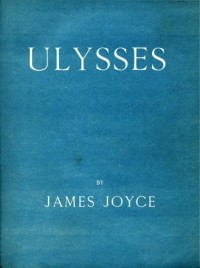
Somewhere, in the last ten or twenty years or so, Dale Peck wrote that the development of the novel in English took a wrong turn somewhere in the middle of James Joyce’s A Portrait of the Artist as a Young Man. His attack was really on post-modernism, and all literature that appears complex and self-referential … Read More